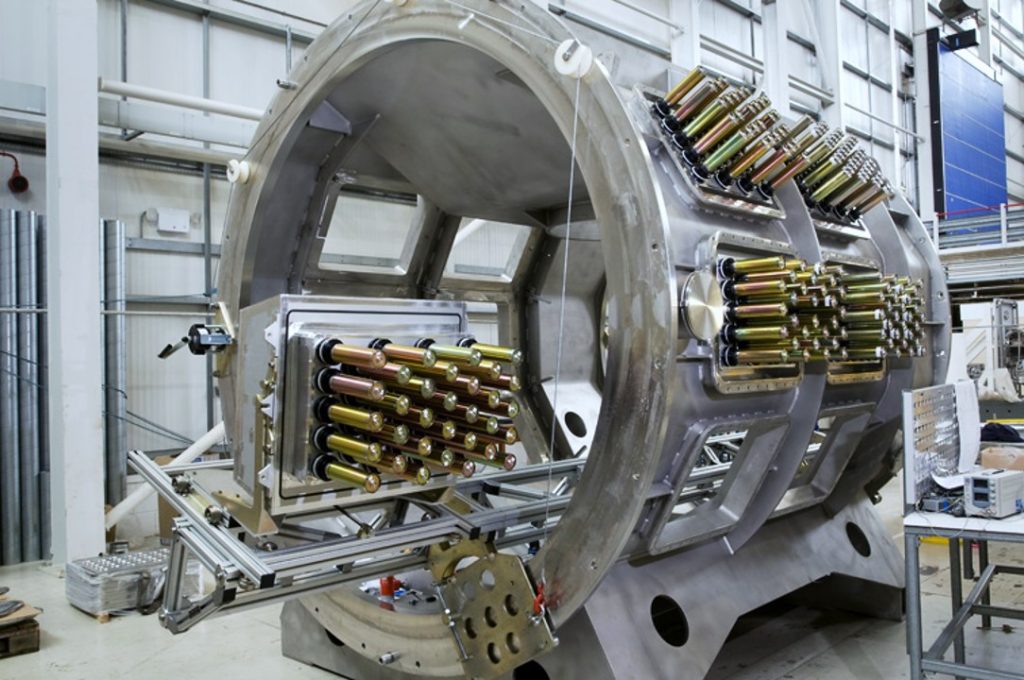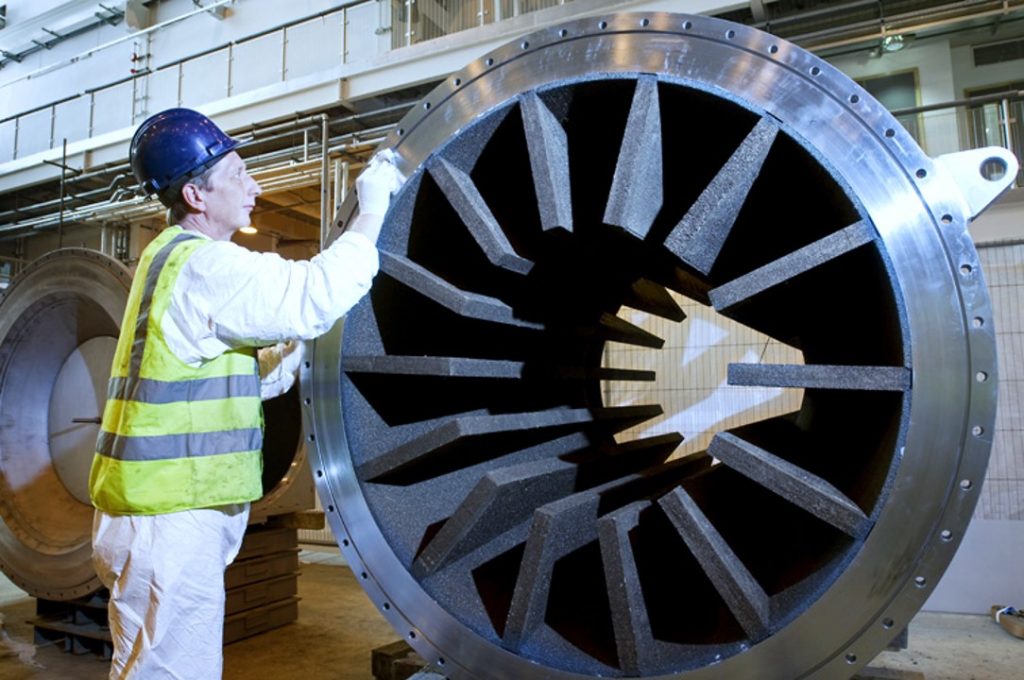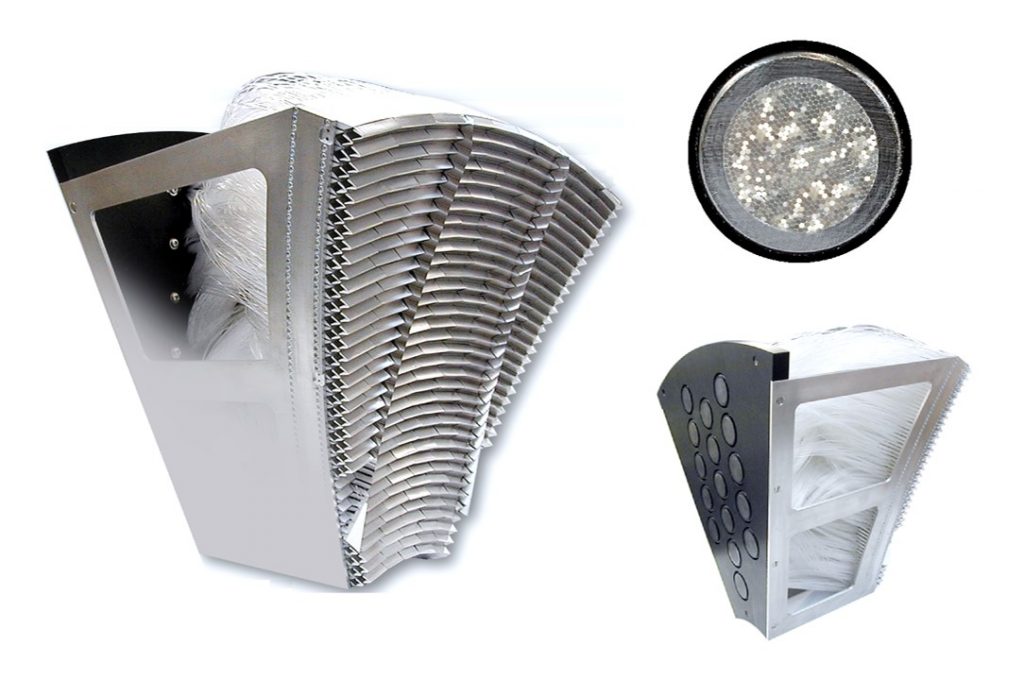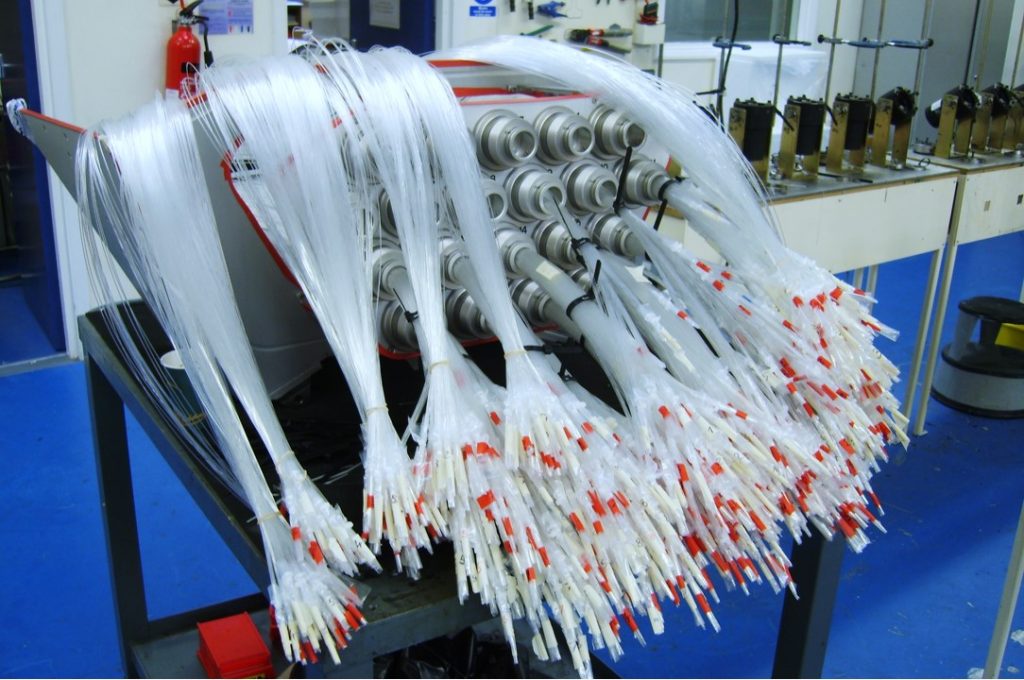Neutron Shielding & Detectors
Essex X-Ray are specialists in the design and manufacture of Neutron shielding and Neutron detectors for use in particle physics applications.
Historically Neutron Detector Arrays for Spectrometers have been manufactured using gas tubes filled with 3He (Helium-3).As this element is no longer available research has shifted towards the development of Optically Coupled Neutron Scintillating Detectors. This type of detector comprises of an aluminium frame loaded with fibre optic bundles. Each bundle consists of 100 off 1 mm diameter step index fibres and a detector panel that has been manufactured with a required number of perforations.
The Acrylic optic fibres are individually polishes to within 600 microns at the lens which then has a plastic Scintillator preferably (ZnS) suspended directly above it held within a 50 micron aluminium foil. These are then positioned pointing directly at the collision point of the sample within a vacuum vessel. The scattered recoil protons then pass through the 50 micron foil then enter the scintillating material resulting in a fluoresce. This light travels along the fibres to a photomultiplier tube which generates electrical pulses proportional to the intensity of the scintillations, and therefore is an indication of the energy of the fast neutrons impinging upon the detector.
Essex X-Ray have successfully built and installed Neutron Detectors & Shielding on instruments commissioned by world leading High Energy Particle Physics research centres.
Boron Carbide is the third hardest material known to man and is the material of choice for neutron shielding applications. Essex X-Ray manufacture resin bonded neutron shielding that can contain up to 95% Boron Carbide, available in both flexible and rigid construction. We can also offer zero Hydrogen ‘ZIP’ mix compound to prevent Neutrons bouncing off Hydrogen atoms.
Complex shapes can be cast to close tolerances and offer an ideal solution to unwanted neutron scattering within and around neutron detector systems. Other advantages of resin-cast neutron shielding include the ability to produce sheets of varying thickness and integrate fixings into the design.




